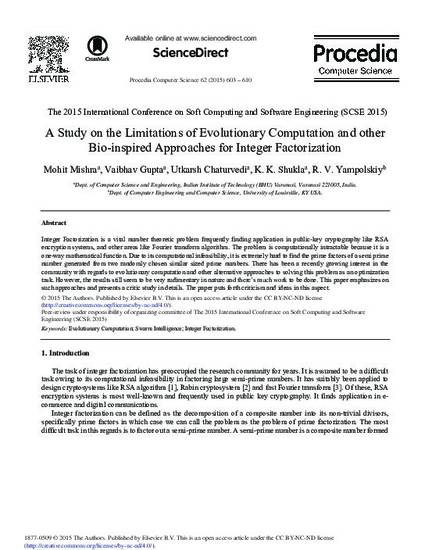
Integer Factorization is a vital number theoretic problem frequently finding application in public-key cryptography like RSA encryption systems, and other areas like Fourier transform algorithm. The problem is computationally intractable because it is a one-way mathematical function. Due to its computational infeasibility, it is extremely hard to find the prime factors of a semi prime number generated from two randomly chosen similar sized prime numbers. There has been a recently growing interest in the community with regards to evolutionary computation and other alternative approaches to solving this problem as an optimization task. However, the results still seem to be very rudimentary in nature and there's much work to be done. This paper emphasizes on such approaches and presents a critic study in details. The paper puts forth criticism and ideas in this aspect.
Mohit Mishra, Vaibhav Gupta, Utkarsh Chaturvedi, K.K. Shukla, R.V. Yampolskiy, A Study on the Limitations of Evolutionary Computation and other Bio-inspired Approaches for Integer Factorization, Procedia Computer Science, Volume 62, 2015, Pages 603-610, ISSN 1877-0509, https://doi.org/10.1016/j.procs.2015.08.553. (https://www.sciencedirect.com/science/article/pii/S1877050915026885)

© 2015 The Authors. Published by Elsevier B.V. This is an open access article under the CC BY-NC-ND license (http://creativecommons.org/licenses/by-nc-nd/4.0/)